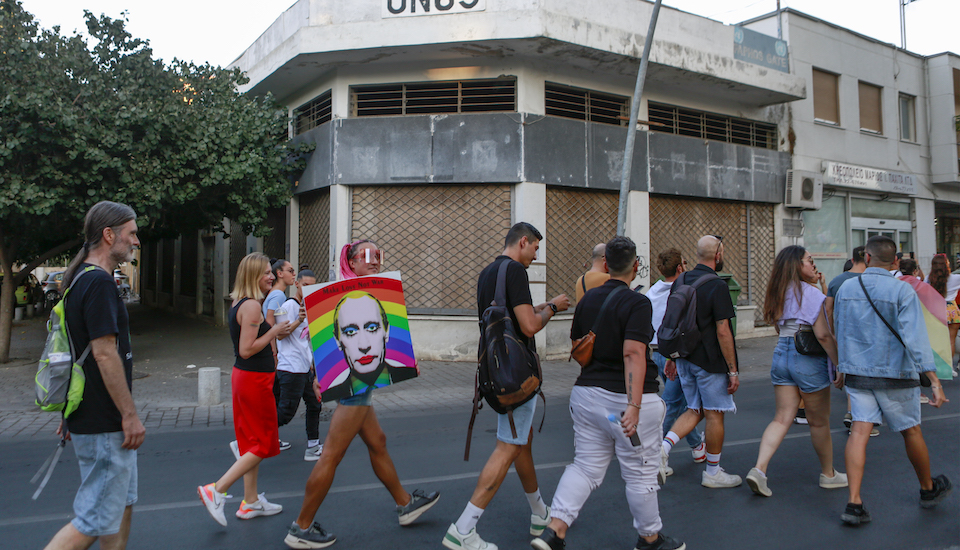A brighter future for people who draw on social care means looking to a more localised, personal approach
While Covid-19 has been tough on us all, and has shone light on many aspects of our lives and wellbeing, when lockdown started I remember thinking that it did not feel that different for me. Actually, I felt more a part of society than I usually do, because everyone was experiencing a life more like mine; for a time, everyone was unable to lead the lives they wanted to lead.
For me and many others who need to draw on social care for support, entering ‘serviceland’ can mean that aspects of our lives that we value are changed without our say, or lost altogether. For me, it is that I want to be able to go out more to see my friends but do not have the support to do so. For others, it may be having no option but to leave their loved ones and their home to go into institutional care, or not being able to choose what time they go to bed in their own home.
Social Care Future is a movement consisting of people who have lived experience of social care, people who work in social care and other allies. We want to bring about positive change in the system, to achieve the following vision: “We all want to live in the place we call home, with the people and things that we love, in communities where we look out for one another, doing the things that matter to us.”
This vision deliberately does not talk about the care and support someone may need but about the things that matter in all of our lives and lead to our wellbeing. This is what social care should be about: people living good, ordinary lives, regardless of disability and at every stage of life.

The Care Act 2014 gave local authorities a duty to promote an individual’s wellbeing. Recently at Social Care Future, we launched the first findings of our inquiry called ‘Whose social care is it anyway?’, which was led by people with lived experience of social care. We heard from over 500 individuals, and what was clear was that most were not having the life experience as described in the vision. In many cases, the current social care offering was not having a positive effect on their wellbeing, with people telling us they felt isolated from their community, unable to choose where or who they live with and living in fear of their support being cut.
So why has the system struggled, and what might some of the solutions be?
The nature of wellbeing
Wellbeing is both innately human and gloriously intangible. We can all identify aspects of our lives that do or do not contribute to our wellbeing; these interact to form an ever-changing web. Current commissioning systems do not like this, because it cannot be easily measured or given a neat cost per unit.
Wellbeing will look different for each person and at different times in their life, so it needs a truly personalised approach. For me, watering my plants boosts my wellbeing; for you, going fishing may be important. But believe me, if I was supported to go fishing it would not boost my wellbeing!
Again, this challenges systems that love well-defined pathways but within which most of our lives do not neatly fit. Current systems also demand evidence-based models; this is more difficult, but not impossible, for truly personalised approaches.
Wider than social care?
Because wellbeing and our lives are complex and do not fit neat commissioning and service pathways, we end up in multiple systems. At one point I had eight different NHS consultants, a GP, two physio teams, wheelchair services, social care, occupational therapists…the list goes on. All were involved in my care, yet they did not talk to one other, or even usually take into account what the others were doing.
This led to an uncoordinated approach, which is not only frustrating and exhausting for the person living it, but cannot be that satisfactory for the people working in it either. I would like one plan that focuses on what I want from my life and then details how each piece of the system contributes, rather than there being a set of unconnected pieces each in its own narrow silo.
The formation of Integrated Care Systems (ICSs) – partnerships between the organisations that provide health and social care which aim to coordinate services and reduce inequalities between different groups – could be an opportunity to shift from reactive care to community-based, preventative approaches that focus on keeping people well and happy rather than fixing them when the system has failed to. It is also vital that ICSs focus on the wider determinants of health and wellbeing; for example, poverty and poor housing, which shorten lives, and inequalities in care experienced by some groups, such as the ways in which women from ethnic minorities receive and experience maternal health care. Social care is, and needs to be recognised as, a vital part of ICSs, supporting people to live their lives how they want to, being able to be a part of and contribute to society. For too long it has been seen only as a last resort or a ‘place’ to which to discharge someone from hospital.
A system under stress
I cannot ignore that another reason social care is struggling is the huge impact that austerity and the massive budget cuts to local authorities have had over the past decade. Health charity The King’s Fund states that in real terms (after adjusting for inflation) spend on social care is £300m less than a decade ago.
This is at a time when there are more people, of both working age and in later life, needing support (likely to be exacerbated by Covid-19). Often framed as a problem or burden, our growing old-age population should be celebrated, as it shows we are living longer and have made wonderful medical advances. Less often talked about is that almost half of the social care budget is spent on working-age adults, a group generally ignored by the media and politicians. Last year, a survey of directors of adult social care found that only 4% were confident they had the budget to meet their statutory duties.
Although in some places this has led to innovative approaches, in many it has led to increasingly high eligibility requirements to receive support, reduced care and support offered, and increased charges. These have direct, negative impacts on people and their families, with many describing the “fight” with the system and stress around reviews due to their fear of care being cut.
Power
Yes, money is tight. But with restricted budgets has often come an increase in over-rigorous monitoring and control from local authorities. Where this has been most keenly felt is in the area of people having choice and control over their care, often through the use of Direct Payments, which were introduced 25 years ago and meant that disabled or older people could choose and buy their own care and support, meaning they could fit it to how it best suited their lives.
However, we are now seeing that a lot of that choice has been removed, with increased rules and restrictions limiting the use of Direct Payments. People feel they are not trusted and there is increasingly a larger power imbalance between local authorities and individuals and their families.
When Social Care Future started we co-produced our vision, so we know what people want from life. The good news is that this vision has received widespread support from people who draw on social care, their families, people working in social care, sector organisations and the public. What is still being debated is how we get there.
In our inquiry, we wanted to try to start to answer that question. We identified five key changes that would bring us closer to experiencing the movement’s vision, bringing us out of a permanent lockdown and into an equal life. They are: communities where everyone belongs; living in a place we call home; leading the lives we want to live; more resources, better used; and sharing power as equals.
These are not new ideas, nor are they simple to achieve. So for phase two of the inquiry we will collaborate with people working in the sector and people who draw on social care to develop the five key changes further, including clear actions and solutions. We made some initial asks in the report; for example, we made a recent request of all directors of adult social care of each local authority that they adopt our vision and use it in their localities alongside Making it Real. Making It Real is a tool published by Think Local Act Personal (TLAP), a partnership of organisations committed to transforming health and social care through personalisation. Using a series of ‘I’ and ’we’ statements to describe what good personalised care looks like, it puts people at the centre of decisions about their support. We have already had positive responses and will be working with a group of local authorities over the next few months.
At Social Care Future we have also been collecting ‘Glimpses of the Future’. These are places or people who are doing things differently already, but who in the current system are not able to grow or multiply.
Some of these innovative models, like Community Circles, are looking at the relationships a person already has and working with their ‘circle’ to look at ways to support them. Others, like Gig Buddies, connect people with a similar taste in music or interests so they can go to and enjoy events together. In Derby since 2012, the local authority has been using local area coordinators to support individuals and local communities, supporting residents to ‘get a life, not a service’, helping to connect them to activities in their local area, build personal resilience and explore solutions within the community. They have found that, as a result, people feel more connected and less isolated, there has been a lower use of traditional services, and the project has made a return on investment of £4 social capital per £1 spent.
Wellbeing is at the heart of Social Care Future’s vision for an individual’s life and gives us a clear aspiration to aim for. But to achieve this, health and social care need to stop just delivering traditional, transactional services in narrow silos and look instead at how they can support the conditions needed for different approaches that strengthen communities, build wellbeing and allow everyone to flourish.
Anna Severwright is a convener of Social Care Future, a movement that looks to bring about change in social care.
This article first appeared in the RSA Journal Issue 3 2021.
Related articles
-
Young at heart
Journal
Jonathan Prosser
Becoming a nation with children at its centre in 10 courageous steps.
-
Open RSA knowledge standards
Blog
Alessandra Tombazzi Tom Kenyon
After investigating ‘knowledge commons’, we're introducing our open RSA standards and what they mean for our practice, products and processes.
-
Worlds apart
Comment
Frank Gaffikin
We are at an inflexion point as a species with an increasing need for collaborative responses to the global crises we face.




Be the first to write a comment
Comments
Please login to post a comment or reply
Don't have an account? Click here to register.